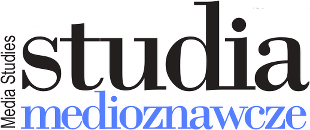Web 2.0 – new frames for creation and knowledge acquisition?
Agata Zysiak
![]() English version of the article
English version of the article
Since its onset, the Internet has been viewed as a chance for democratization of media broadcasts and as an egalitarian source of access to knowledge and culture. It was to be an easily accessible medium, free of censorship, and some even viewed it as anarchist. The concept of Web 2.0 is based on the notion of involving users in generating, based on massive cooperation, virtual content. Users can add their materials and applications not only to their personal websites but can also co-create the content of large portals. The trend, however, reversed itself in the direction away from corporate portals to the generation of blogs and social networking sites; away from content generated from the top-down as a result of organized commercial activity and toward an on-going interactive process of mass creation and negotiation of content; away from a closed system of content management to an open structure of tags and links.
KEYWORDS
Internet, Web 2.0, collective intelligence, folksonomy

